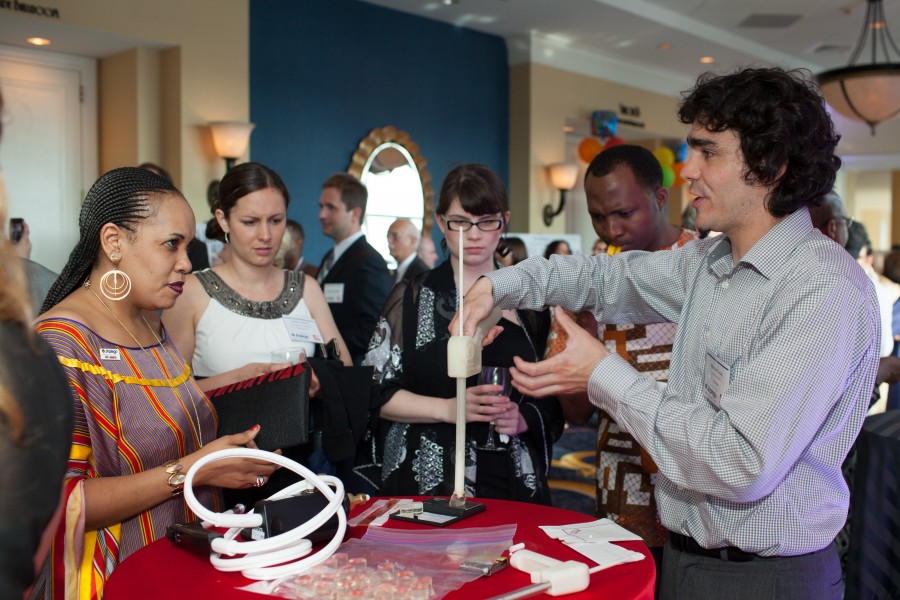For 40 years, Jhpiego has worked to prevent the needless deaths of women and their families in the developing world. On Monday, the international health nonprofit organization hosted a hometown gala at the Baltimore Marriott Waterfront as a local stop in part of a year-long series of events in countries where the Johns Hopkins affiliate works to prevent and treat cervical cancer, HIV/AIDS, and malaria, and ensure women and families receive quality health services.
"Jhpiego reflects the restless spirit that drives our university," President Ronald J. Daniels told the event's 350 guests. "Consistently striving for excellence, Jhpiego recognizes that excellence is not an end in itself, but must be adapted to each context, in each country, in order to best serve those most in need."
Daniels recognized the creative leadership of Jhpiego's president and CEO, Leslie Mancuso, and the organization's many public and private partnerships.
"From Kenya to Angola, Afghanistan to South Sudan, Indonesia to Nigeria, Jhpiego has saved millions of lives and improved health in over 150 countries," Mancuso said. "We are extremely proud of our four decades of success in not only developing a global health workforce that keeps women and families alive and healthy, but also in providing them with low-cost innovations that they can then use in their own communities."
During the event, Jhpiego honored Ellen and Tom Hoberman, along with their children Sarah and Eric, for their advocacy on behalf of women and families in the developing world and their philanthropic support of Jhpiego programs. Ellen Hoberman is a Jhpiego advisory board member. Richard Besser, a Johns Hopkins alumnus and ABC News chief health and medical editor, also was recognized for his compelling global health coverage. Besser, a graduate of Williams College and the University of Pennsylvania School of Medicine, did his residency and chief residency in pediatrics at Johns Hopkins.
As guests were arriving at Monday evening's gala, Jhpiego fellows who also studied at the university's Center for Bioengineering Innovation and Design demonstrated new innovations they are developing to reduce the cost of cervical cancer screening and treatment, assist midwives to identify complications of labor, and screen for pre-eclampsia/eclampsia, a leading cause of maternal deaths worldwide.
Jhpiego was founded by prominent Johns Hopkins obstetricians and gynecologists to share the latest in reproductive health care and technology with health providers in the developing world. Under the decade long leadership of Mancuso, Jhpiego's budget has grown from $5 million to $230 million, and the number of programs has expanded from four to 98.
Posted in Health
Tagged global health, president ron daniels, jhpiego, leslie mancuso








